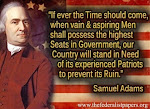Dean Baker writes in an opinion piece:
(F)or all the sneaky and squirrelly ways that the rich use to escape their tax liability, none can beat the hedge fund managers' tax break. This is the way the rich tell the rest of us, because they are rich and powerful, the law doesn't apply to them.
The hedge fund managers' tax break, which is also known as the carried interest tax deduction, is different from other tax breaks in that it has no economic rationale. With most other tax breaks there is at least an argument as to how it serves some socially useful purpose. That is not the case with the hedge fund managers' tax break. This is simply a case where the rich don't feel like paying taxes and are saying to the rest of us, "what are you going to do about it?"You can read more at:
http://truth-out.org/opinion/item/23074-the-hedge-fund-managers-tax-break-because-wall-streeters-want-your-money
As for "what are you going to do about it?" Vote for candidates who will end tax breaks that are geared to make the very rich even richer. Those tax breaks leave the rest of us paying more than our fair share to fill in the gaps. As Warren Buffet has said: “There’s class warfare, all right, but it’s my class, the rich class, that’s making war, and we’re winning.” The hedge fund managers' tax break is an example of how the rich make war.
